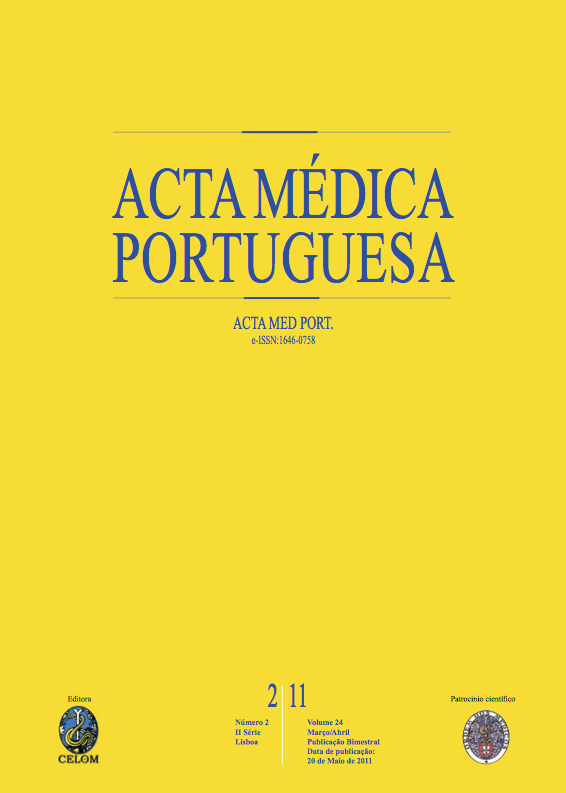Síndrome cardio-renal: os desafios no tratamento da insuficiência cardíaca.
DOI:
https://doi.org/10.20344/amp.1620Resumo
Heart failure is a chronic and progressive disease that is estimated to affect approximately 20 million people worldwide and is one of the major public health problems. Its prevalence is reaching epidemic levels with about 550,000 new cases diagnosed annually, partly due to increased life expectancy in developed countries. And as it is a systemic disease, it can cause dysfunction in various organs, but especially in the kidney. The renal failure is often associated with heart failure and, when present together, make the treatment more complex and the prognosis is worse. This is the cardio-renal syndrome. The definition of cardio-renal syndrome varies according to the working groups, and there isn't a consensus. The exact cause of deterioration of renal function and the mechanism behind this interaction are complex, multifactorial in nature and not fully known at present. The treatment available is the one used for the treatment of heart failure. It is necessary to maintain the normal function of filtration, secretion and reabsorption in kidney to have a real improvement of the clinical condition of the patient. Patients with higher risk of developing nephropathy and those who have diagnosed renal failure should have prescribed drugs that are handled very carefully. But as in many other clinical situations, there aren't perfect drugs available to treat cardio-renal syndrome and the existing ones may have serious side effects in medium/long term causing the deterioration of renal function and possibly an increased mortality. The treatment is truly challenging in patients with severe fluid overload that is refractory to diuretics. This article aims to present the existing definitions of cardio-renal syndrome, its epidemiology, describe the current knowledge about the pathophysiology and its relationship to therapeutic interventions, some actual strategies and future technologies in an attempt to preserve the kidney, mainly during the decompensation of chronic heart failure.Downloads
Downloads
Como Citar
Edição
Secção
Licença
Todos os artigos publicados na AMP são de acesso aberto e cumprem os requisitos das agências de financiamento ou instituições académicas. Relativamente à utilização por terceiros a AMP rege-se pelos termos da licença Creative Commons ‘Atribuição – Uso Não-Comercial – (CC-BY-NC)’.
É da responsabilidade do autor obter permissão para reproduzir figuras, tabelas, etc., de outras publicações. Após a aceitação de um artigo, os autores serão convidados a preencher uma “Declaração de Responsabilidade Autoral e Partilha de Direitos de Autor “(http://www.actamedicaportuguesa.com/info/AMP-NormasPublicacao.pdf) e a “Declaração de Potenciais Conflitos de Interesse” (http://www.icmje.org/conflicts-of-interest) do ICMJE. Será enviado um e-mail ao autor correspondente, confirmando a receção do manuscrito.
Após a publicação, os autores ficam autorizados a disponibilizar os seus artigos em repositórios das suas instituições de origem, desde que mencionem sempre onde foram publicados e de acordo com a licença Creative Commons









